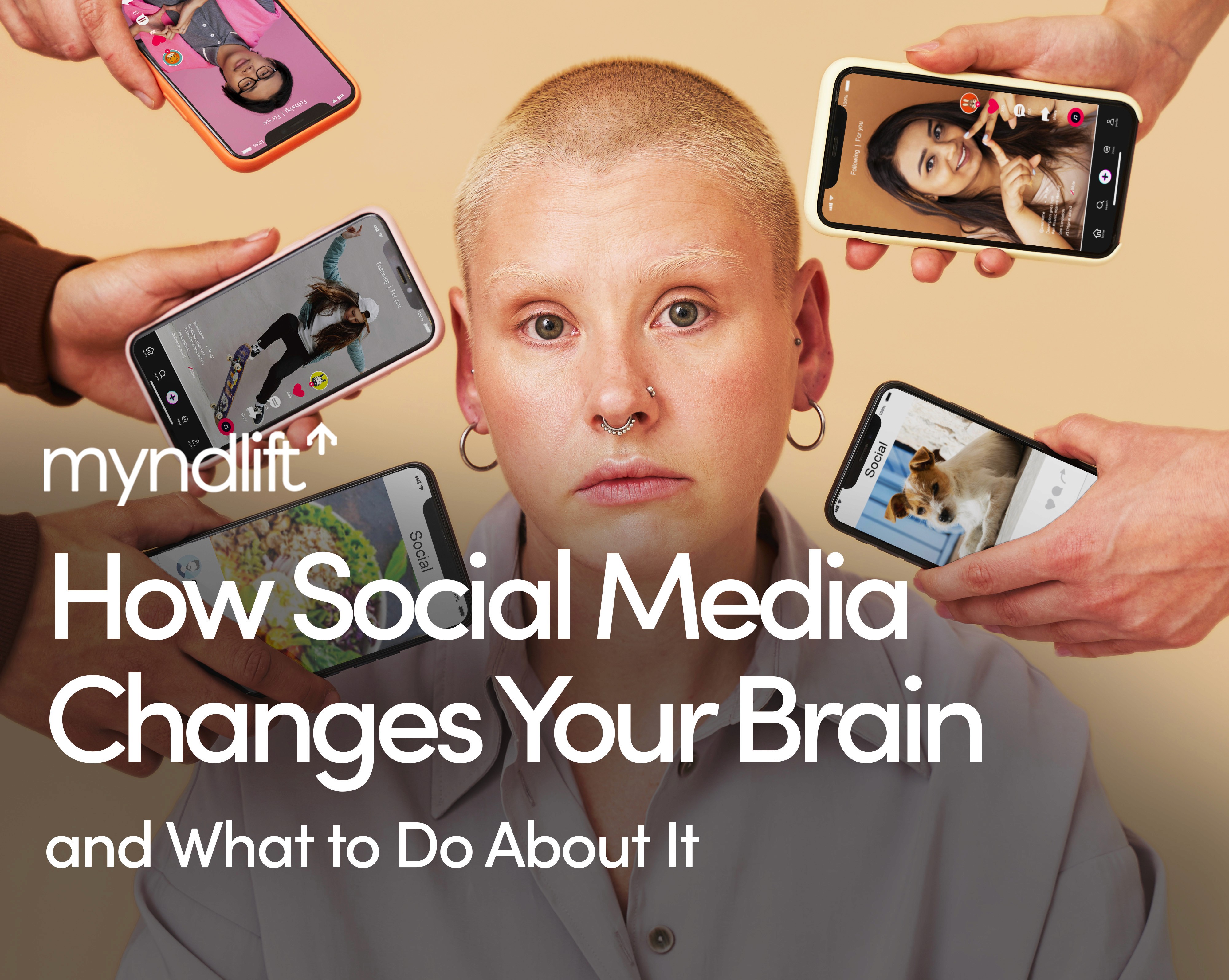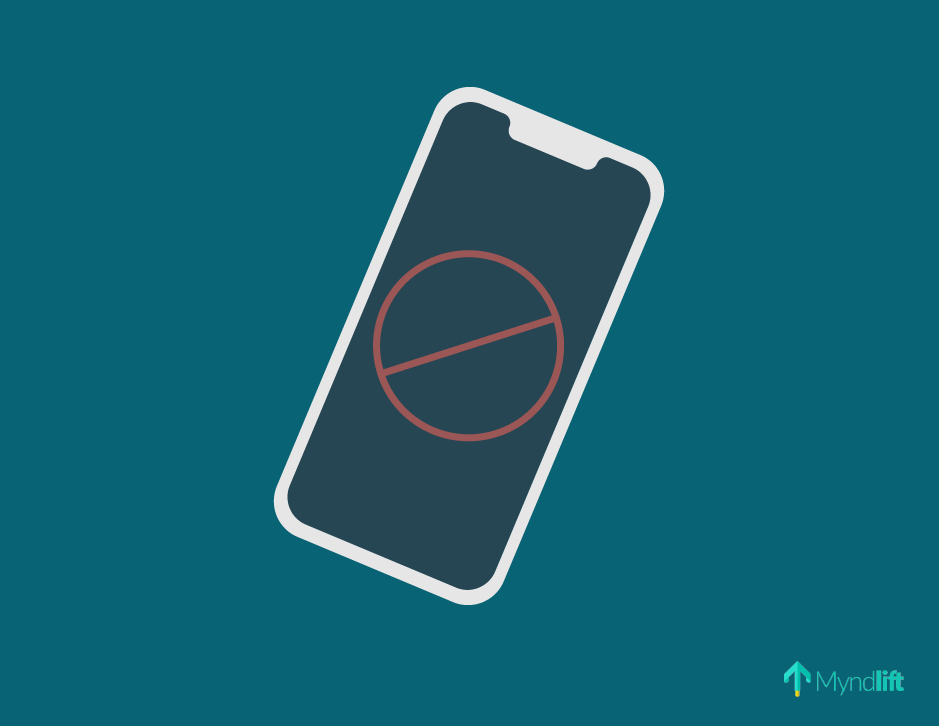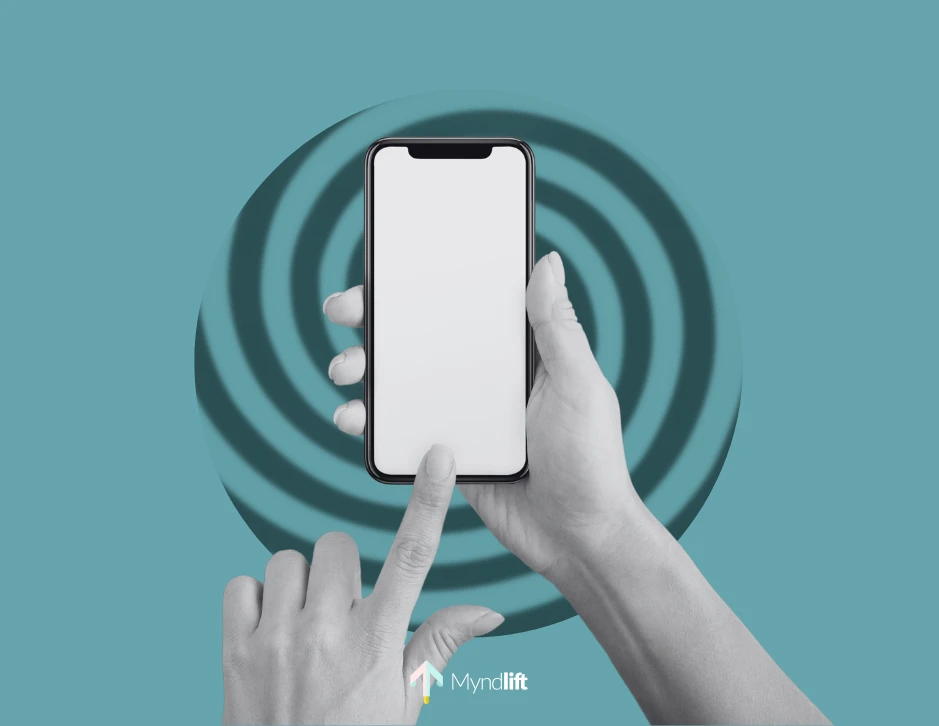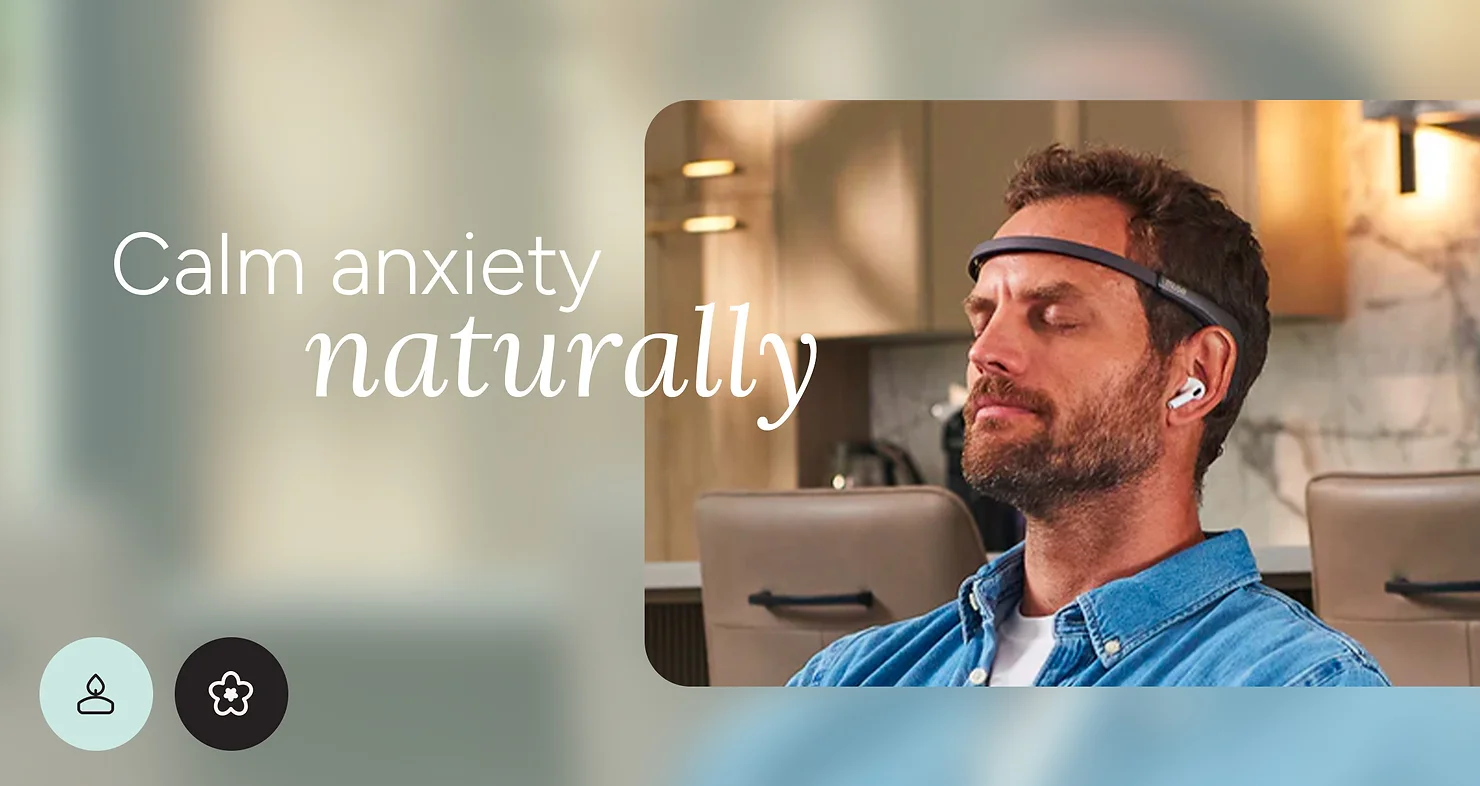Has time ever slipped away from you while you’re scrolling through social media? Before you know it, you’ve spent 2 hours watching videos on TikTok or learning an Instagram influencer’s daily eating habits.
In our hyper-connected world, these scenarios are all too familiar. According to certain recent statistics, we spend approximately 143 minutes per day on social media. That’s over two hours spent scrolling.
But is this significant? Evidence increasingly indicates that it is. In fact, research finds that social media not only affects our mental health but also causes long-lasting changes to our brains.
So, what exactly happens to our brains on social media? And how do we take back control over our digital lives?
In this article, we’ll break down the relationship between social media and the brain and explore:
How social media affects the brain
The effects of social media on mental health
How to preserve our focus while using social media
Social Media and the Brain
One of the reasons why social media can have powerful effects on our brains is that our brains change and adapt based on our experiences in a process called neuroplasticity.
In other words, we have many nerve cells in our brains, which use electrical and chemical signals to send information throughout our body, including from one brain region to another.
For example, if we feel hot, we would identify this through the receptors on the outer layers of our skin. They would then send signals to our brain so that it knows our body is hot, motivating us to take off our sweaters.
This process forms a neural pathway in our brain that becomes stronger and more efficient over time. So, by the time we’re adults, we know almost immediately to take a layer of clothing off when we’re feeling hot.
In this way, our brain is like any other muscle - when we have new experiences and learn new things, our brain forms connections between nerve cells, either strengthening existing pathways or creating new ones.
When considering the relationship between social media and the brain, it all comes down to how our nerve cells respond to the stimulation we get.
For example, social media platforms trigger specific patterns of signals through the nerves in our eyes to our brains. Over time, the stimulation from social media causes changes to the nerve pathways and alters the structure of our brains. However, the effects extend beyond just visual input.
Social media influences various aspects of our brain function, including how we feel about ourselves, our cognitive processes, our feelings of connectedness, and our reward systems.
4 Ways Social Media Affects Our Brains
1. Affects Our Concentration
Social media often diverts our attention away from a task without us even realizing it. Think back to the last time you were doing something and a notification pinged on your phone.
By taking our attention away from the task at hand, social media forces us to multitask. So, instead of focusing on a single task, our brain tries to split its resources in two - this requires a lot more thinking power.
And while more research is needed on why social media is more distracting than a car alarm sounding outside your window, or noises within your house, certain researchers suggest that the number of benefits it offers us - checking in on friends, learning about social norms, and expressing ourselves - makes it particularly all the more distracting.
As these kinds of distractions continue to happen, our brain function may change. Namely, our right prefrontal brain activity may increase, as this part of the brain is involved in attention.
These changes may make it more difficult to focus on just one task at a time without getting distracted, which could decrease our performance.
2. Alters Our Memory System
Nowadays, it’s easier than ever to access information online - all information is just a Google search or social media search away. Unfortunately, this easy access to information is impacting our brains.
A meta-analysis of four studies found that when we have better access to information (i.e., through our mobile phones) we are more likely to remember where the information came from, not the content of the information.
As a result, we become progressively more dependent on searching social media or Google to find answers, but more efficient at knowing where to look.
3. Changes Our Internal Social Structures
Researchers found that online networks of social media friends tend to activate brain regions involved in memory and face recognition, while real-life social networks stimulate the areas of the brain involved in deep, personal relationships and familiarity.
These findings suggest that social media interactions engage distinct neural pathways compared to face-to-face interactions.
For instance, while browsing through our social media feeds, we may rely more on memory and recognition processes to navigate through our long list of acquaintances.
On the other hand, engaging in meaningful conversations or shared experiences in real life may activate brain regions associated with empathy, emotional bonding, and social understanding.
While social media networks activate different brain regions than real-life interactions, it’s important to note that this doesn’t necessarily imply a fundamental alteration of the brain.
Instead, it highlights how adaptive our brains can be when responding to different social stimuli.
However, prolonged and frequent engagement with online social networks may influence how we prioritize and perceive relationships, potentially shaping our social cognition over time.
4. Rewires Our Reward System
Finally, social media works in a similar way to gambling or taking recreational drugs. It triggers the release of dopamine, a hormone that’s responsible for making us feel satisfied, pleased, and motivated. But why is this?
Research found that we get a chemical reward from sharing our experiences with others, and social media gives us a platform to share our experiences more often.
In fact, one study found that 80% of users on a social media platform shared information about themselves compared to around 30 - 40% during in-person interactions. So, we naturally find social media more rewarding, especially when we have more of an audience.
The Impact of Social Media on Mental Health
The research looking into how social media affects our mental health has only sprung up in recent years. However, more and more evidence is surfacing about the negative effects of social media on mental health, especially for children and teens.
On one hand, social media platforms offer opportunities for peer support, community engagement, and connection, which can improve our sense of belonging and self-esteem.
Online communities provide spaces for chatting about everyday challenges, adverse life events, and discussing health conditions, which can reduce stigma and increase our sense of feeling emotionally supported.
On the other hand, there are certainly potential risks linked to excessive social media use. Experts have particular concerns about body image dissatisfaction, cyberbullying, addiction, and the possible negative mood effects of social media overuse.
Excessive social media usage has been linked to increased loneliness, as well as fear of missing out, and a general decrease in wellbeing and life satisfaction. What’s more, people at risk of social media addiction tend to report more symptoms of depression and lower self-esteem.
So, while social media can provide valuable resources for our psychological well-being, it’s important to consider the potential risks of using it in excess.
Visual Guide to Brainwaves: What we've learned about the brain from 1M neurotherapy sessions →
Step-by-Step Guide to Preserving Our Focus While Using Social Media
It’s easy to slip into the pit of social media and find yourself in a social media mental health conundrum. If you find it challenging to maintain your focus while using social media, try these four simple steps:
1.Choose Single Tasking Over Multitasking
When we spend long periods of time on social media, our attentional systems are being overused. Our attentional systems have a limited capacity, so when we overwork these, our brains are working at reduced capacity.
2. Take Lots of Breaks
Try to take lots of breaks when we’re browsing social media or looking for information online. Breaks give our attentional system time to recover and the information we’ve read can better be transferred into our memory, meaning that our brain has to store less information at any one time.
3. Set a Limit on Our Social Media Use
We can do this by downloading an app that locks your social media after a specific time or using the settings on our phone to notify us when we’ve spent a certain amount of time on our phone.
4. Listen to podcasts instead
Taking in visual stimuli is far more demanding on our attention systems than auditory stimuli, so we can use this to our advantage to maximize our brain capacity while taking in information.
The Final Verdict on Social Media and the Brain
As quickly as a flash, social media has begun to consume not only our time, but our attention spans. But more than this - it has begun to affect our brains and mental health. From hyper-triggered reward systems to altered memory systems, social media’s effects are extreme.
Yet, when we become aware of the relationship between social media and our brains, we can start to change our habits. By focusing on single-tasking and by setting limits on our social media use, we can claw back control over our digital habits, one mindful step at a time.
Myndlift provides a personalized expert-guided brain training program that can help you elevate your wellbeing by improving your sleep quality, focus, calm, and self-control over mood. Take this 10-second quiz to check if you’re eligible to kick-start your journey for better brain health.
About the author:
Emma Loker
Emma is a practicing trainee Child and Adolescent Psychotherapist studying at the University of Cambridge and a psychology writer with years of experience. She achieved a 1st Class Honors Degree in Psychology from Aston University in Birmingham.
About the checker:
Kaija Sander, Ph.D.
Kaija Sander is a cognitive neuroscientist and scientific consultant for Myndlift. She holds a BSc in Biomedical Science with a specialization in Neuroscience and Mental Health from Imperial College London and a PhD in Neuroscience from McGill University. Her doctoral research focused on brain connectivity relating to second language learning success. She is passionate about the broader applications of science to have a positive impact on people’s lives.
References
Braghieri, L., Levy, R., & Makarin, A. (2022). Social media and mental health. The American Economic Review, 112(11), 3660–3693. https://doi.org/10.1257/aer.20211218
Brooks, S. (2015). Does personal social media usage affect efficiency and well-being? Computers in Human Behavior, 46, 26–37. https://doi.org/10.1016/j.chb.2014.12.053
Bucci, S., Schwannauer, M., & Berry, N. (2019). The digital revolution and its impact on mental health care. Psychology and psychotherapy, 92(2), 277–297. https://doi.org/10.1111/papt.12222
Choudhury, S., & McKinney, K. A. (2013). Digital media, the developing brain and the interpretive plasticity of neuroplasticity. Transcultural psychiatry, 50(2), 192–215. https://doi.org/10.1177/1363461512474623
Dixon, S. J. (2024, April 10). Average daily time spent on social media worldwide 2012-2024. Statisa. https://www.statista.com/statistics/433871/daily-social-media-usage-worldwide/#:~:text=How%20much%20time%20do%20people,minutes%20in%20the%20previous%20year.
Firth, J., Torous, J., Stubbs, B., Firth, J. A., Steiner, G. Z., Smith, L., Alvarez-Jimenez, M., Gleeson, J., Vancampfort, D., Armitage, C. J., & Sarris, J. (2019). The "online brain": how the Internet may be changing our cognition. World psychiatry : official journal of the World Psychiatric Association (WPA), 18(2), 119–129. https://doi.org/10.1002/wps.20617
Kanai, R., Bahrami, B., Roylance, R., & Rees, G. (2012). Online social network size is reflected in human brain structure. Proceedings. Biological sciences, 279(1732), 1327–1334. https://doi.org/10.1098/rspb.2011.1959
Koessmeier, C., & Büttner, O. B. (2021). Why are we distracted by social media? Distraction situations and strategies, reasons for distraction, and individual differences. Frontiers in Psychology, 12. https://doi.org/10.3389/fpsyg.2021.711416
Krach, S., Paulus, F. M., Bodden, M., & Kircher, T. (2010). The rewarding nature of social interactions. Frontiers in behavioral neuroscience, 4, 22. https://doi.org/10.3389/fnbeh.2010.00022
Maza, M. T., Fox, K. A., Kwon, S. J., Flannery, J. E., Lindquist, K. A., Prinstein, M. J., & Telzer, E. H. (2023). Association of Habitual Checking Behaviors on Social Media With Longitudinal Functional Brain Development. JAMA pediatrics, 177(2), 160–167. https://doi.org/10.1001/jamapediatrics.2022.4924
Moisala, M., Salmela, V., Hietajärvi, L., Salo, E., Carlson, S., Salonen, O., Lonka, K., Hakkarainen, K., Salmela-Aro, K., & Alho, K. (2016). Media multitasking is associated with distractibility and increased prefrontal activity in adolescents and young adults. NeuroImage, 134, 113–121. https://doi.org/10.1016/j.neuroimage.2016.04.011
Naaman, M., Boase, J., & Lai, C. H. (2010, February). Is it really about me? Message content in social awareness streams. In Proceedings of the 2010 ACM conference on Computer supported cooperative work (pp. 189-192).
Naslund, J. A., Bondre, A., Torous, J., & Aschbrenner, K. A. (2020). Social media and mental Health: benefits, risks, and opportunities for research and practice. Journal of Technology in Behavioral Science, 5(3), 245–257. https://doi.org/10.1007/s41347-020-00134-x
Puderbaugh, M., Emmady, P. D. Neuroplasticity. [Updated 2023 May 1]. In: StatPearls [Internet]. Treasure Island (FL): StatPearls Publishing; 2024 Jan-. Available from: https://www.ncbi.nlm.nih.gov/books/NBK557811/
Rideout, V., Fox, S., & Wellbeing Trust. (2018). Digital Health Practices, Social Media Use, and Mental Well-Being Among Teens and Young Adults in the U.S. Providence St. Joseph Health Digital Commons. https://digitalcommons.providence.org/cgi/viewcontent.cgi?article=2092&context=publications
Siebers, T., Beyens, I., Pouwels, J. L., & Valkenburg, P. M. (2021). Social Media and Distraction: An Experience Sampling Study among Adolescents. Media Psychology, 25(3), 343–366. https://doi.org/10.1080/15213269.2021.1959350
Sparrow, B., Liu, J., & Wegner, D. M. (2011). Google effects on memory: cognitive consequences of having information at our fingertips. Science (New York, N.Y.), 333(6043), 776–778. https://doi.org/10.1126/science.1207745
Tamir, D., & Mitchell, J. (2012). Disclosing information about the self is intrinsically rewarding. Proceedings of the National Academy of Sciences of the United States of America, 109(21), 8038–8043. https://doi.org/10.1073/pnas.1202129109
Vishwakarma, M. (2022). Social media: An addiction in disguise. Peer Reviewed and UGC-CARE Listed Bilingual Journal of Rajasthan Sociological Association, 85.
Wagner, U., Galli, L., Schott, B. H., Wold, A., van der Schalk, J., Manstead, A. S., Scherer, K., & Walter, H. (2015). Beautiful friendship: Social sharing of emotions improves subjective feelings and activates the neural reward circuitry. Social cognitive and affective neuroscience, 10(6), 801–808. https://doi.org/10.1093/scan/nsu121
Zsila, Á., & Reyes, M. E. S. (2023b). Pros & cons: impacts of social media on mental health. BMC Psychology, 11(1). https://doi.org/10.1186/s40359-023-01243-x





